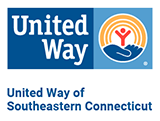Last week was suicide prevention week, and I didn’t realize until it was almost over. I’m used to being at school and seeing the awareness events put on by Active Minds, but this year there was nothing to remind me until I saw a tweet from Connecticut 2-1-1. There’s a decent amount of conversation around mental health resources on college campuses, but out in the “real world” it’s something that’s easy to forget. This is a shame, because suicide rates are actually highest among middle-aged people. And in Connecticut, on average, someone dies by suicide every day. While of course 9-1-1 is the number to call if someone is in immediate danger, what do you do about mental health treatment, or addressing the conditions in someone’s life that are creating a bad situation? In other words, what prevention resources are out there?
I’ve been used to being in college, where there are people looking out for you- resident assistants, professors, staff members- people who are trained to identify the fact that you might need assistance and direct you to the services you need, whatever they may be. If you went to the admissions office and told them you were feeling sick, they could direct you to Student Health Services. But when you’re living independently as most adults do, it’s a little more difficult to navigate available services. If you were to walk into a bank and ask them about the closest food pantry, you may not have much success. Sure, the internet is great, but sometimes our needs are a little too specific for a Google search to really capture.
That’s why I was so happy to learn that 2-1-1 exists, not just for mental health but for all kinds of situations. It wasn’t until I began working at United Way that I became aware of 2-1-1, but after that I started noticing it being advertised by other organizations as well. Operating 24 hours/day, 365 days/year, it’s the most user-friendly way to find what you’re looking for. The people who answer the phones are professionals who address issues ranging from substance abuse to domestic violence to financial problems to simply helping you find social groups or to get more involved in your community. And it’s certified by the American Association of Suicidology, so they know how to connect you with those mental health resources that are so important. I was really glad to find out that this organized entity exists to help people in our community, and frankly I’m surprised more people don’t know about it. Take a minute to poke around here, because this knowledge might come in handy for you or someone you know.
Live United,
Caitlin
